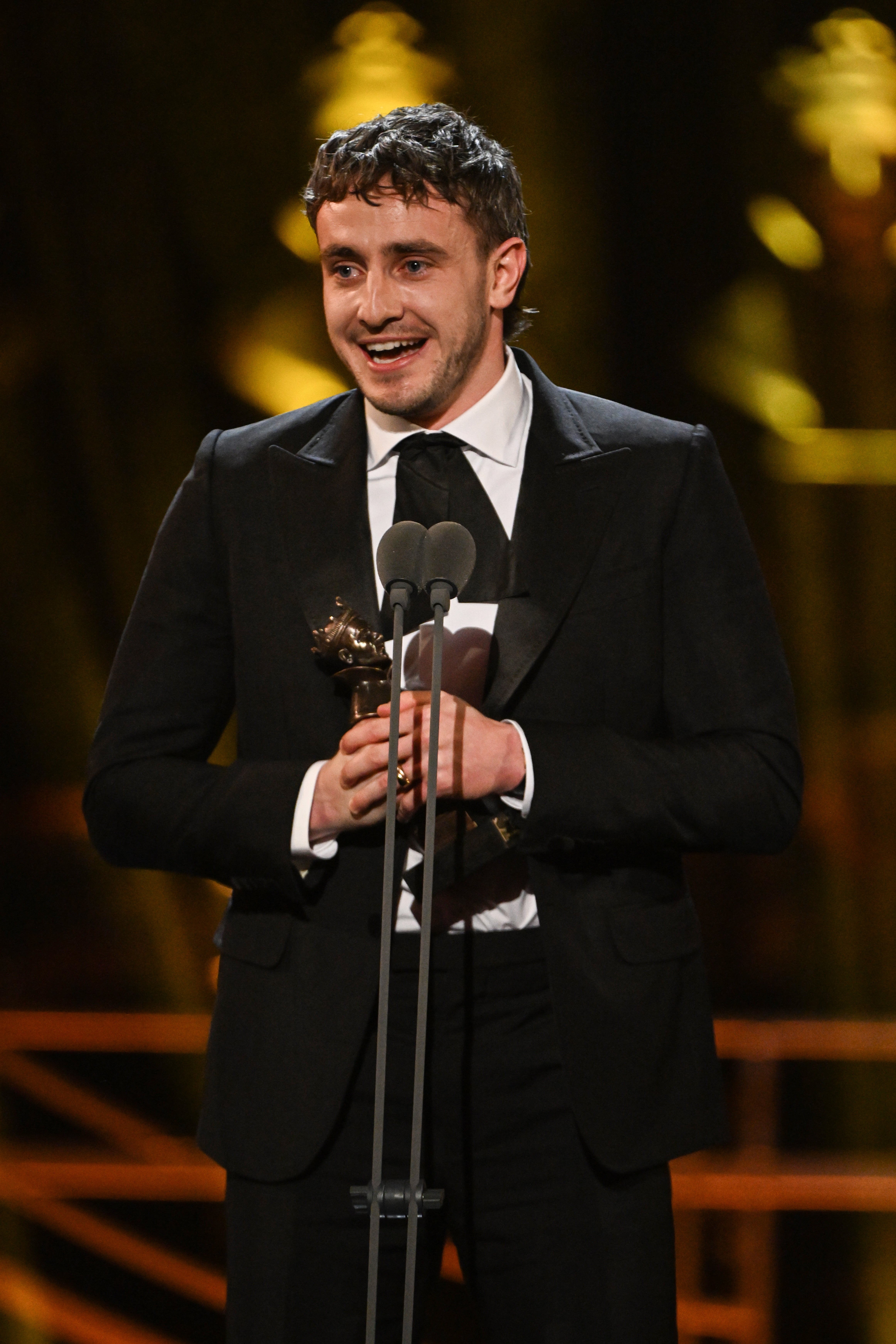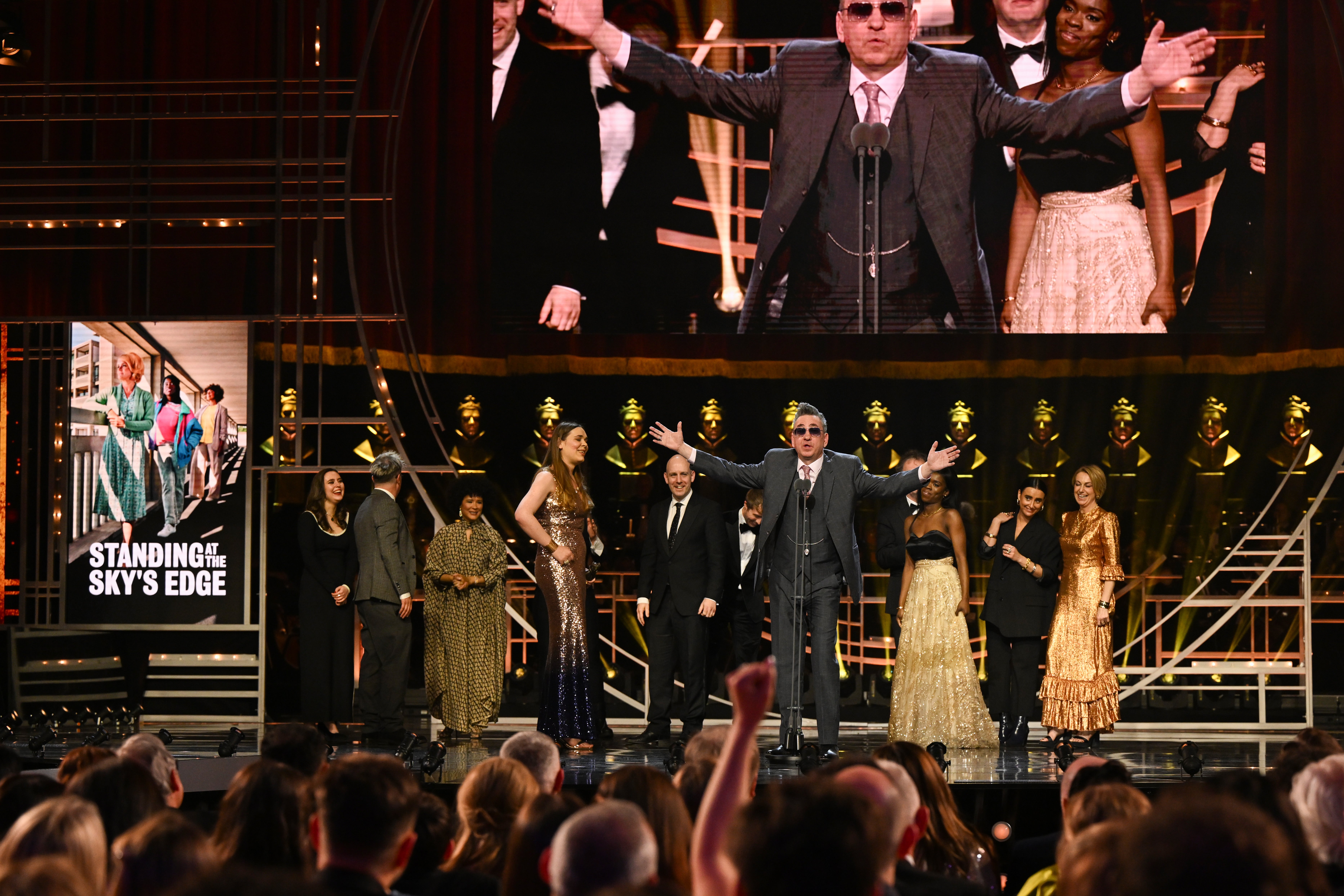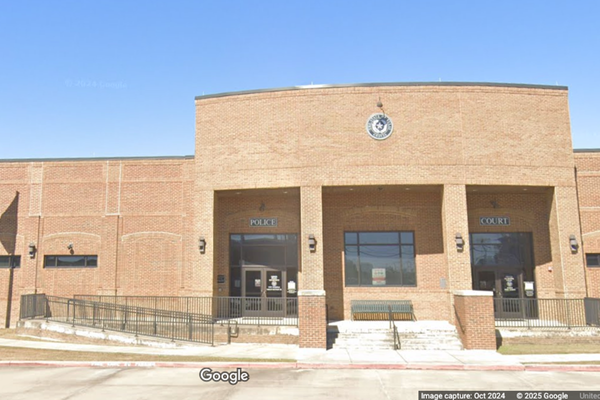
Jodie Comer and Paul Mescal secured top gongs for their West End debut performances at the Olivier Awards as the biggest night in British theatre returned.
At the ceremony on Sunday night (2 April), Killing Eve star Comer won Best Actress for her role as Tessa in Prima Facie, a searing one-woman play by Suzie Miller, which also won the coveted Best New Play award. Read The Independent’s review here and our interview with Miller here.
Irish star Mescal took home Best Actor for his role as Stanley Kowalski in the new stage adaptation of A Streetcar Named Desire. The Independent gave the show four stars.
The Almeida Theatre production also picked up the award for Best Revival and Anjana Vasan won Best Actress in a supporting role for her turn as Stella in the play directed by Olivier winner Rebecca Frecknall.
The star-studded event proved to be a successful test run for Eurovision host Hannah Waddingham.
She might now be best known for Ted Lasso, but Waddingham worked in musical theatre for years before getting her big break and showed just what she could do on stage at the Royal Albert Hall.
Despite being a “virgin presenter extraordinaire”, Waddingham was the perfect balance of fiery, flirty and fun. The audience was instantly won over in her opening speech, when Waddingham told Jodie Comer she’d “happily be mauled to death” by her before speaking to Rose Ayling-Ellis in British Sign Language. Eurovision, it appears, is in safe hands.
Comer used her award to empower aspiring actors who haven’t been to drama school. “Don’t let anyone tell you it isn’t possible… it is possible,” she said.
In his speech, Mescal singled out his training institution, as well as “my favourite director” Rebecca Frecknall. Competing in a stacked category alongside heavyweights Tom Hollander, Rafe Spall, David Tennant and Giles Terera, Mescal seemed overwhelmed by his win and thanked his parents, ending his speech: “Mum, I hope you get better soon.”
Mescal’s mother Dearbhla recently underwent chemotherapy after being diagnosed with cancer.
When his co-star Vasan also won for Best Supporting Actress, she shouted out Lydia Wilson, the production’s original Blanche Dubois who withdrew one week before the show was scheduled to open due to health reasons.

The Royal Shakespeare Company’s adaptation of Studio Ghibli’s My Neighbour Totoro (named a “fantastical and unlikely” production in our review), returning to the Barbican this summer, took home six awards, including for Best Director and Best Entertainment or Comedy Play.
Best Musical Revival went to Oklahoma! (which The Independent’s Nicole Vassell gave a middling review), while arguably the night’s biggest award, Best New Musical, went to Richard Hawley’s Standing at the Sky’s Edge (review here).
Earlier in the night, Hawley gave a truly memorable speech, dedicating his award for Best Original Score or New Orchestrations to the late Pulp bassist Steve Mackey. Hawley began telling a lengthy story about Mackey, only for the orchestra to threaten to play him off and the singer to bellow: “I know it’s not f***ing 40 seconds, but you can edit this s*** out.”
The ensuing story, set during him and Mackey’s primary school days, was just as unexpected and expletive packed. “Stop clapping, we’ve got to get on!” Waddingham shouted at the cackling crowd. For more Hawley-isms, you can check out his excellent interview with The Independent’s Megan Graye.
Otherwise, the night ran smoothly with Waddingham at the helm. More political moments were peppered throughout, with speeches calling on the Arts Council to keep funding opera and audiences to support regional and subsidised theatres.
Beverley Knight, performing twice before winning her long-awaited Olivier for Best Supporting Actress in a Musical for Suffragette hip-hop musical Sylvia (review here), made a dig at campaigns saying actors should “retrain”, while Best Actor in a Musical winner, Oklahoma!’s Arthur Darvill implored: “We should be paying our teachers properly and not cutting the arts in schools.”
Saying it loudest, The P Word writer Waleed Akhtar – winning for Best Show in an Affiliate Theatre – called on people to oppose the government’s asylum policies. “If I wasn’t fasting, I’d probably say eff the Tories,” he quipped.

But the most powerful moment came from last year’s Best Supporting Actress winner Liz Carr. During her 2022 speech, Carr called for “accessible ceremonies” after she was forced to wait in the wings as the nominations were read out.
Appearing on the stage this year, she commented on the improved accessibility of the awards with the words: “Now that’s a ramp… access makes everything better!” Given the change that have been made in a year, Carr joked that she should use her manifesting ability for more good – “world peace, a new government and more work”.
As well as celebrating the young theatrical talent of today and most innovative new productions, Sunday’s ceremony was also a night of honouring legends. Receiving the Special Award, Arlene Phillips recalled a career fighting in a male-dominated environment, as well as her wild years babysitting for Ridley Scott, doing drag and performing on stage naked.
The Lifetime Achievement award, meanwhile, went to Derek Jacobi. The actor remembered Laurence Olivier himself as “a bit of a b****r”, but one he owed “everything” to. “How do you start a speech when you’re already in tears?” he said, visibly shaking. “If luck plays a part in any actor’s life, then I’ve had it in bucketfuls.”







